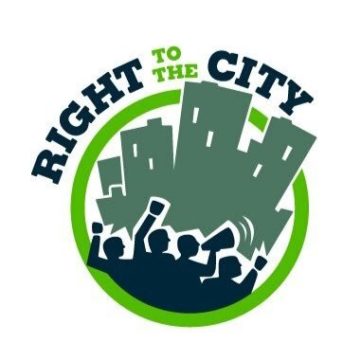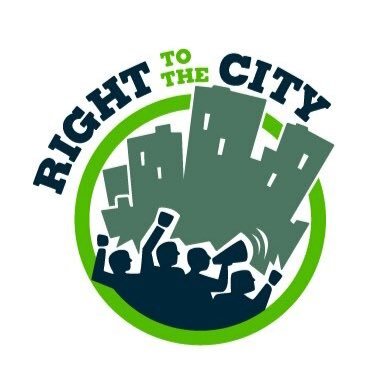Right to the City (RTTC) emerged in 2007 as a unified response to gentrification and a call to halt the displacement of low-income people, people of color, marginalized LGBTQ communities, and youths of color from their historic urban neighborhoods. We are a national alliance of racial, economic and environmental justice organizations.
Through shared principles and a common frame and theory of change, RTTC is building a national movement for racial justice, urban justice, human rights, and democracy.
RTTC seeks to create regional and national impacts in the fields of housing, human rights, urban land, community development, civic engagement, criminal justice, environmental justice, and more. Right to the City was born out of desire and need by organizers and allies around the country to have a stronger movement for urban justice. But it was also born out of the power of an idea of a new kind of urban politics that asserts that everyone, particularly the disenfranchised, not only has a right to the city, but as inhabitants, have a right to shape it, design it, and operationalize an urban human rights agenda.
In the realm of ideas, a key resource and touchstone is “Le droite à la ville” (Right to the City) a book published in 1968 by French intellectual and philosopher Henri Lefebvre. In the sphere of human rights, this powerful idea was adopted by the World Urban Forum and elaborated into the World Charter of the Right to the City in 2004. Building from this powerful idea, international principles, and forward looking grassroots organizing, the Right to the City Alliance was established in January 2007.

